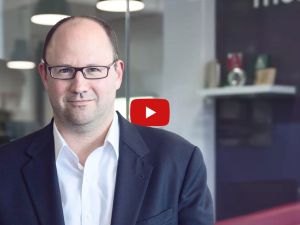As you approach retirement age, it’s more important than ever to ensure you have your financial affairs in order so you can enjoy the retirement you deserve. But how you manage your pension provision most effectively can be challenging without the right professional guidance.
In the UK for example, just over half of over 50s claim that they’ll fund their retirement through a mix of state, company and private pensions (51%), while 16% say they will mostly be reliant on the state pension, according to our latest research, four percent on the sale of property and three percent believe an inheritance will fill the coffers to fulfil their retirement dreams.
This can all seem a little daunting at first, which is why we’ve put together a quick guide to effective retirement planning, no matter your financial circumstances, current pension provision or retirement goals.
Are you ready for retirement?
As you approach retirement, it’s vital to undertake a comprehensive review of your financial situation. Evaluate your savings, investments, debts, and other assets. Consider whether your retirement goals have changed and whether your current financial resources align with those goals.
“According to retirement living standards data, for a single person, a comfortable lifestyle requires £33,600 per year, £20,800 for a moderate lifestyle, and £10,900 for a minimum standard of living. For couples, a comfortable lifestyle requires £49,700 per year, £30,600 for a moderate lifestyle, and £16,700 for a minimum standard of living.”
When am I going to retire? Can I afford to retire?
Determine the optimal timing for your retirement. Assess whether you’re financially prepared to retire and maintain your desired lifestyle. Consider factors like your pension savings, potential part-time work, and other income sources. A detailed analysis will help you make an informed decision about the timing of your retirement.
“If you want to have a gross retirement income of £25k p/a, no state pension income, you’ll need a pension pot worth a minimum of £500k
The logic is that it’s reasonable to expect an average annualised return of around 5% from a balanced and diversified portfolio over the long term. So, assuming this return, if you withdraw up to the same 5% each year, your pot shouldn’t decrease in value. However, timing the market does fall into this and is especially important for higher-risk invested portfolios.”
Understand drawdown and consider partial drawdown
Pension drawdown is a flexible way to access your pension savings in retirement. It is important to understand how drawdown works, including its benefits and risks. You might consider partial drawdown, where you take a portion of your pension as a lump sum while leaving the rest invested. This approach can provide you with both immediate and ongoing income.
“When choosing a pension drawdown, there are several factors to consider, such as if you want pension income flexibility, manage your annual tax liability, and keep your remaining pension pot investment. A pension drawdown might not be right for you if you have a yearly guaranteed income.”
Manage tax implications
Withdrawals from your pension, especially larger sums, can have tax implications. Familiarise yourself with the tax rules and thresholds for pension withdrawals. Proper planning can help you minimise the tax impact of your pension income.
Review annuity options
Annuities provide a guaranteed income for life or a specified period. If you’re considering annuities, research the different types available and compare rates from various providers. Annuities offer financial security, but it’s important to choose one that aligns with your retirement goals.
“Don’t forget that in the annuity versus drawdown debate, once you set up an annuity, that’s it. You can’t change it, so tread carefully. Annuity vs drawdown is not an either/or decision. There is the drawdown vs annuity vs cash approach, whereby you can take your 25% tax-free lump sum and use the rest to buy an annuity and convert the balance to a drawdown. Of course, your pot would have to be big enough.”
Your beneficiaries and estate planning
Review and update your estate planning documents, including your will and any trusts you may have set up. Ensure that your beneficiaries are accurately designated, and your estate plan reflects your current wishes. This step is crucial to ensure a smooth transfer of assets to your loved ones. As your pension sits out of your estate, it can be considered a good vehicle to pass down inheritance to your loved ones, as in most cases it is exempt from inheritance tax. This should be considered if you’re looking to pass on your wealth rather than spend it, as perhaps you may choose to drawdown from other assets liable for income tax, rather than your pension first
Fine-tune your retirement planning and pension provision today
As you approach retirement age, seeking financial guidance ever more important. We can help you navigate the complex decisions surrounding retirement, tax implications and investment strategies so you can enjoy the retirement you deserve. Regular reviews of your financial plan will provide the flexibility to adapt to changing circumstances and make the most of your retirement years.
You should also ensure you’re familiar with all the latest pension and tax rules, as announced by the Chancellor in his Spring Budget and Mansion House speeches. Here, we take a look at the changes and what they could mean for you.
To get in touch with a member of our team, you can book an appointment online here, or simply give us a call today.
As with all investing, your capital is at risk. The value of your portfolio with Moneyfarm can go down as well as up and you may get back less than you invest. A pension may not be right for everyone. Tax treatment depends on your individual circumstances and may be subject to change in the future. If you are unsure if a pension is right for you, please seek financial advice.
*As with all investing, financial instruments involve inherent risks, including loss of capital, market fluctuations and liquidity risk. Past performance is no guarantee of future results. It is important to consider your risk tolerance and investment objectives before proceeding.





